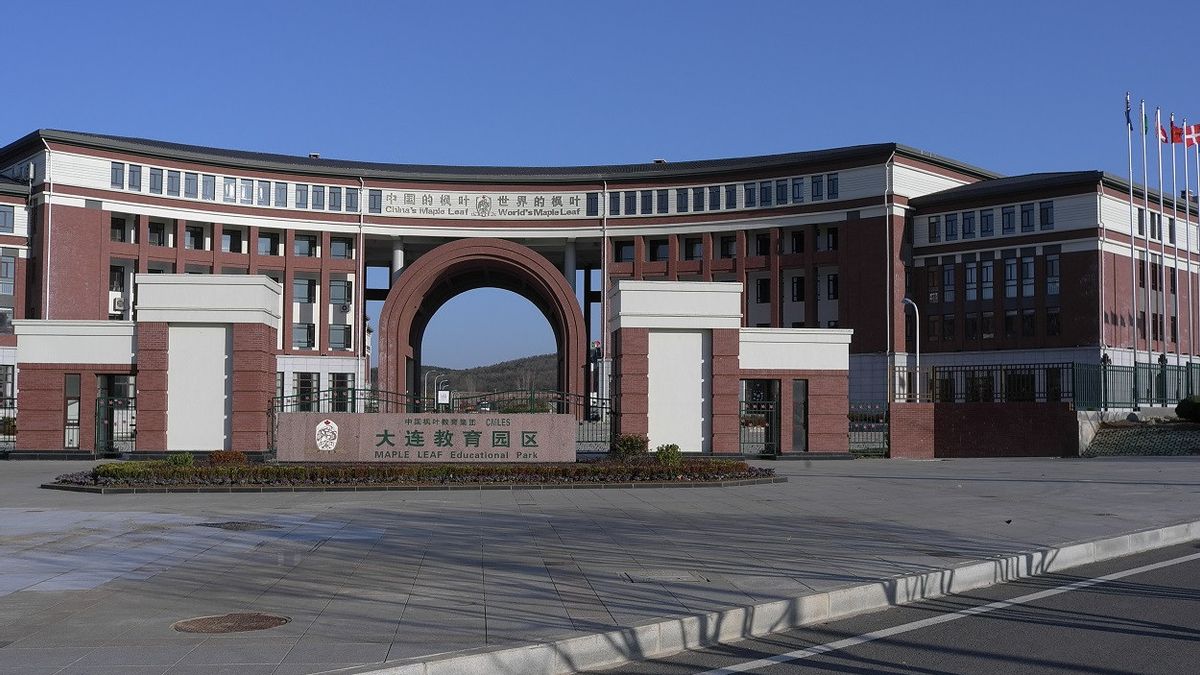
JAKARTA - Tired of strict COVID-19 restrictions, Michel is preparing to terminate his contract and leave an international school in Shanghai, China, after three years of teaching there.
After two years of nearly closed borders, tough health checks and quarantine norms, the decision in early April to lock down China's commercial hub proved to be the final challenge for the 35-year-old.
"It has reached a point where the economic benefits of working here don't make up for the lack of freedom to come and go," said the science teacher, who declined to give his full name for privacy reasons.
Michael is one of hundreds of international teachers headed for the exit, as the COVID-19 pandemic and new education rules are reshaping the work environment in China.
This situation prompted the international schools that have mushroomed over the past two decades, as China opened up to foreign investment and talent, to sound warning bells.

Some feel their survival is now at stake, while the quality of education will suffer in the long run.
About 40 percent of Michael's colleagues will leave work in China this year, up from 30 percent last year and 15 percent before the pandemic, said a group of 66 schools in China that employ about 3,600 teachers.
And finding a replacement for them is no easy feat, according to the Executive Director of the China and Mongolia International Schools Association (ACAMIS) Tom Ulmet.
"People around the world have read about lockdowns and don't feel the need to bow to it," he added.
In addition to the teacher exodus, international schools are facing a decline in foreign student enrollment due to COVID-19 restrictions, driving many foreign families away, while others stay away.
This has changed the composition of students in many schools, increasing the number of Chinese with at least one parent holding a foreign passport.

While middle-class parents have long looked at international schools as a way to increase their children's chances of winning a place at a leading global university. Some have avoided emigrating in recent years as China is largely COVID-free.
With costs that can exceed 300,000 yuan or 44,000 US dollars per year, the total annual value of tuition paid to international schools is estimated at 55.4 billion yuan or about 8.2 billion US dollars.
Data from the Xinxueshuo education website revealed that until 2019, there were 821 international schools throughout China. Some international schools for younger children have also had to grapple with regulatory changes, as Beijing moves to limit foreign influence in the education system.
That resulted in the recent removal of the British Harrow School name from affiliated schools in Beijing, while Westminster School scrapped plans for schools across China.
Both Hong Kong-based Asia International School Limited, whose subsidiary operates Harrow-affiliated schools in China, and Westminster declined to comment.

In a poll of European businesses by the European Chamber of Commerce, all respondents from the education sector said the tightening of COVID-19 restrictions had made China a less attractive investment destination.
The existing conditions are causing parents with children in international schools to be increasingly concerned, with the quality on offer due to the restrictions and lockdowns brought on by China's zero-tolerance policy on COVID-19.
Melanie Ham's daughter missed the International Baccalaureate (IB) exam in May, after the Shanghai lockdown prevented shipments of question papers arriving from overseas for the IB and Advanced Placement (AP) exams.
Her daughter's school is trying her best, Ham said, but she is still worried about the future.
"I think they're just trying with whatever they can, as far as resources and planning and emotional energy are concerned."
Such misery means the death knell for some schools in southern China, said Aleksa Moss, head of early learning at an international school in the city of Guangzhou.
"Several low-level international and bilingual schools are closed here. I believe that's the case in Shanghai and Beijing," he said.
This turmoil sparked a demand for teachers who had chosen to stay. Jessica, a high school teacher with nearly 20 years of experience in China, said she was inundated with interview requests at online job fairs recently.
"I was offered so much money," he said, adding that one school in the capital, Beijing, offered a starting salary of more than 50,000 yuan, or about 7,361 US dollars per month.
The English, Chinese, Japanese, Arabic, and French versions are automatically generated by the AI. So there may still be inaccuracies in translating, please always see Indonesian as our main language. (system supported by DigitalSiber.id)












